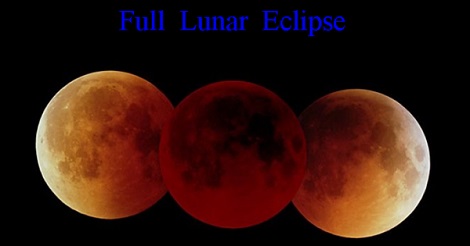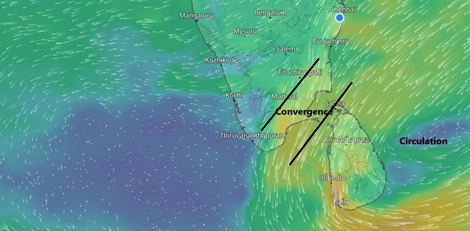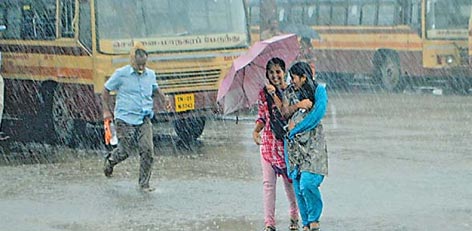Full-scale lunar eclipse tomorrow-a rare occasion after a gap of 150 years
Posted on: 30/Jan/2018 1:28:15 PM

When the planet earth comes between the Sun and the Moon, with the shadow of the earth falling on the Moon, a lunar eclipse occurs. When all these 3-Sun, Moon, and the Earth-are in a straight line, a full-scale lunar eclipse occurs.
A full-scale lunar eclipse is set to occur tomorrow (Wednesday, 31st January). This happens on the 2nd Full Moon Day in the month of January (another rare occasion). The moon will be seen in blue colour. Hence. This is an event known as ‘blue moon’.
A special feature is that the eclipse occurs just at the moment of appearance of the moon in the sky. When the Moon appears in the depths of the sky, the full-scale lunar eclipse begins at 6.25 PM. This will last till 7.25 PM. Then, the shadow of the earth, which fell on the moon, will start gradually disappearing and the moon will be restored to be seen in full.
During this eclipse, the sun rays will not directly fall on the moon. However, the scattering of light in the layers of the atmosphere will fall on the moon. The light beams of short wavelength will be scatted in and the red, which has the highest wavelength, reaches the moon. So, the moon will appear as red. This is another rare occasion, known as the ‘bloody moon’. This occurs after a gap of 150 years and it is a very rare occasion.
The 3rd rare occasion is known as the ‘Super Moon’. When the Moon is orbiting the Earth, it comes closest to the earth once in a month. On this occasion, the moon will appear larger and seen as a ‘Super Moon’. This also occurs during the full-scale lunar eclipse. The moon will appear 10% larger than usual and brighter, according to the expert astronomers. They have also observed that the waves in the seas and other large water-bodies will be higher but however will be harmless.
This lunar eclipse can be seen throughout India. It can be seen with naked eye. It can also be seen through telescopes.
The expert astronomers also observe that there is no scientific reason for the traditional belief that one should refrain from eating during the full-scale lunar eclipse.







